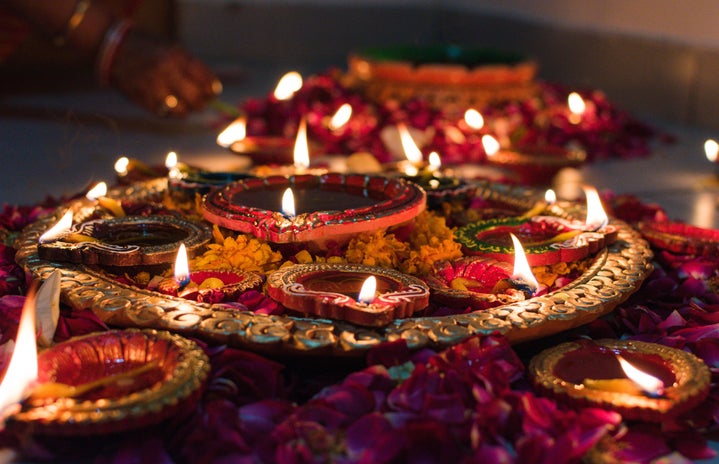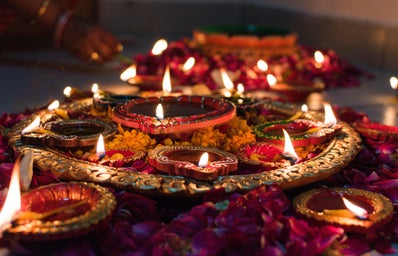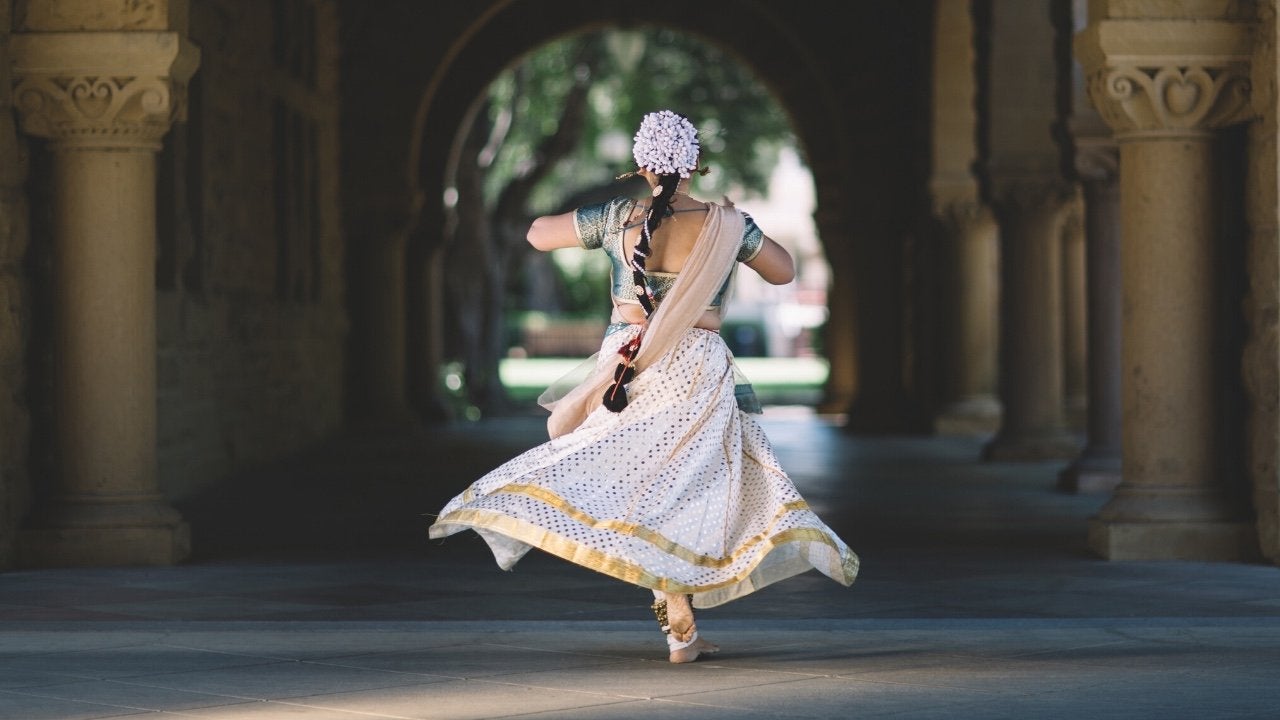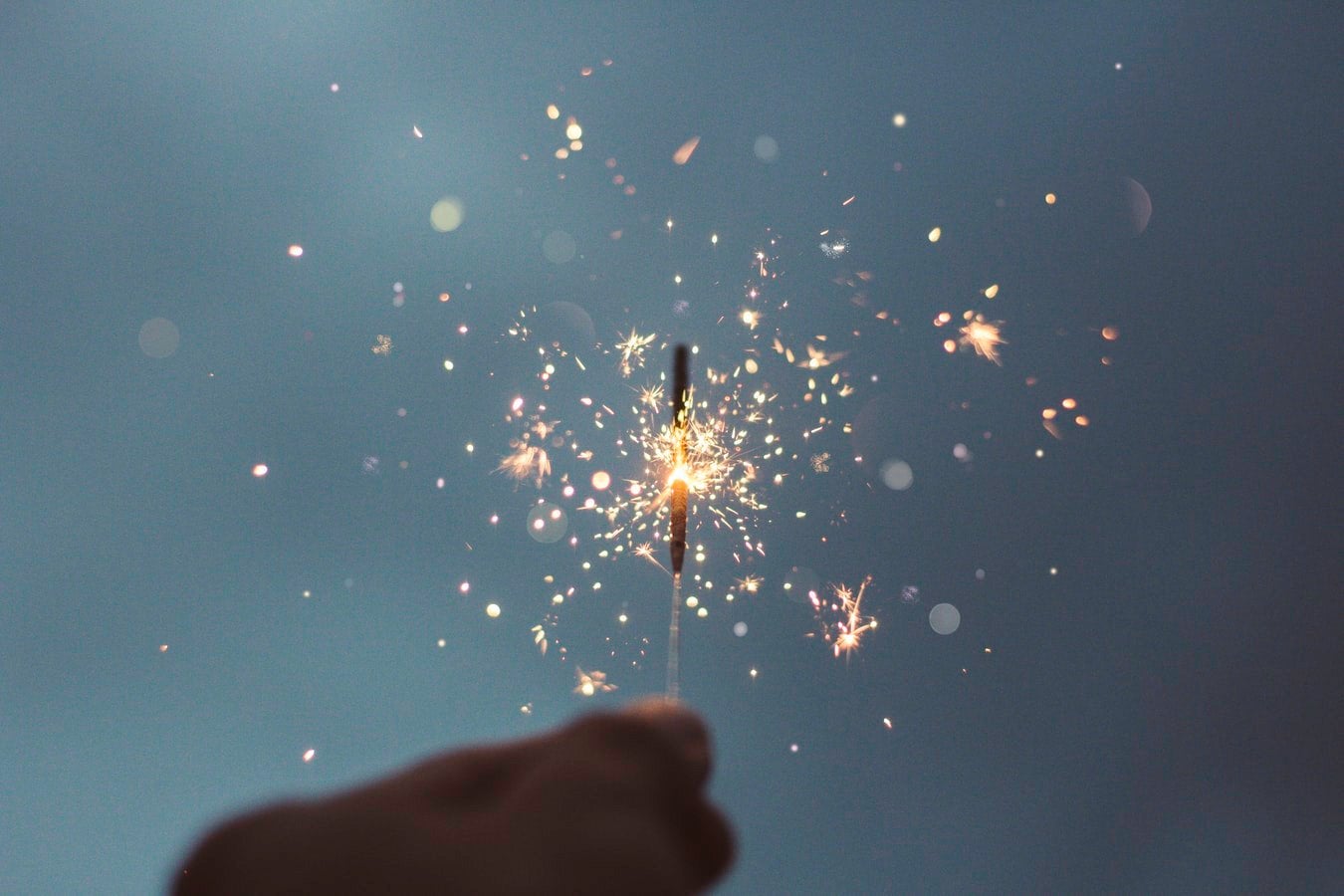Diwali, or Deepavali as it is called in many parts of India (see this map for exactly which regions), literally translates to “a series of lights”. But it is so much more than lights. Diwali is not only celebrated by Hindus like myself, but also Jains, Sikhs, and Buddhists, with each religion having their own significance and etymology behind the festival. Diwali is a five-day festival that signifies the symbolic victory of light over darkness, knowledge over ignorance, and the triumph of good over evil. During Diwali, people who celebrate decorate their homes with diyas (lamps) and rangoli (colored powder that is used to create beautiful patterns). For Hindus from Gujarat like myself, the day after Diwali marks the New Year. The third day of Diwali is when all Hindus perform Lakshmi puja. During Lakshmi puja we pray to Lakshmi, the goddess of wealth, prosperity, auspiciousness, and good fortune, and invite her into our homes.
For me, Diwali is a celebration of my culture and my relationship with family and friends. It is truly my favorite time of the year. My family celebrates Diwali like many other families by performing Lakshmi puja, eating a big Diwali feast together, decorating our home, and lighting sparklers at the very end. Diwali celebrations are some of my favorite family memories. That big Diwali feast is something I look forward to each year. Another important aspect of Diwali is the amount of mithai (sweets) that are consumed. Some of my favorites include: kaju katli, ladoos, gulab jamun, and barfis. I can and have unashamedly finished a whole box of kaju katlis by myself before. During Diwali the stock of Indian sweets in my fridge far surpasses the usual amount of none at all, as the closest Indian grocery store near my house is in another state. That’s another reason Diwali is my favorite time of year: the amount of calls you have to make next wishing all of your extended family members (including third twice-removed cousins) a “Happy Diwali and New Year.” While it may sound like something you would dread and only do because your Mom makes you, it does not feel like a chore at all. Yes, you have to basically block off a whole day to make these calls across multiple global time zones, but every phone call is a joyous time, spent mostly remembering how you are related or know this person and enjoying the well-wishes for the new year.
Due to the South Asain diaspora in diverse parts of the world, you are likely to find someone who is celebrating Diwali, and you are probably more than welcome to join in their celebration. That is the beauty of Diwali, and also why I was so sad to be unable to celebrate this Diwali with my family. Hours away at college, I missed home and ghar ka khanna (home-cooked/mom-cooked food) a little extra that week. It was an emotionally unstable week for me, so I tried to find ways to celebrate Diwali this year any way I could. Thankfully, I was able to squeeze a FaceTime between my classes with my parents who were doing puja. I also had Diwali dinner at a local restaurant with a friend very appropriately named Diya. I then spent Thursday night calling my grandparents to wish them a Happy Diwali and had a much-needed conversation with them. Following that, I was able to celebrate with the South Asian Society on campus, and I counted my blessings for that. All in all, it was not the worst Diwali I could have had, which would mean not celebrating it at all, but I did the best with what I could and in the end I actually had a very enjoyable Diwali.
Lastly, a public service announcement: wish your South Asian friends a ‘Happy Diwali’. Trust me, we appreciate it. Diwali may not be widely known apart from those who celebrate it, but if there is one thing to take away from this article; it is that Diwali is deeply important to those who celebrate it. So around this time next year, pick up your phone and text some well-wishes and good vibes to your South Asian friends. We will appreciate that and you.




